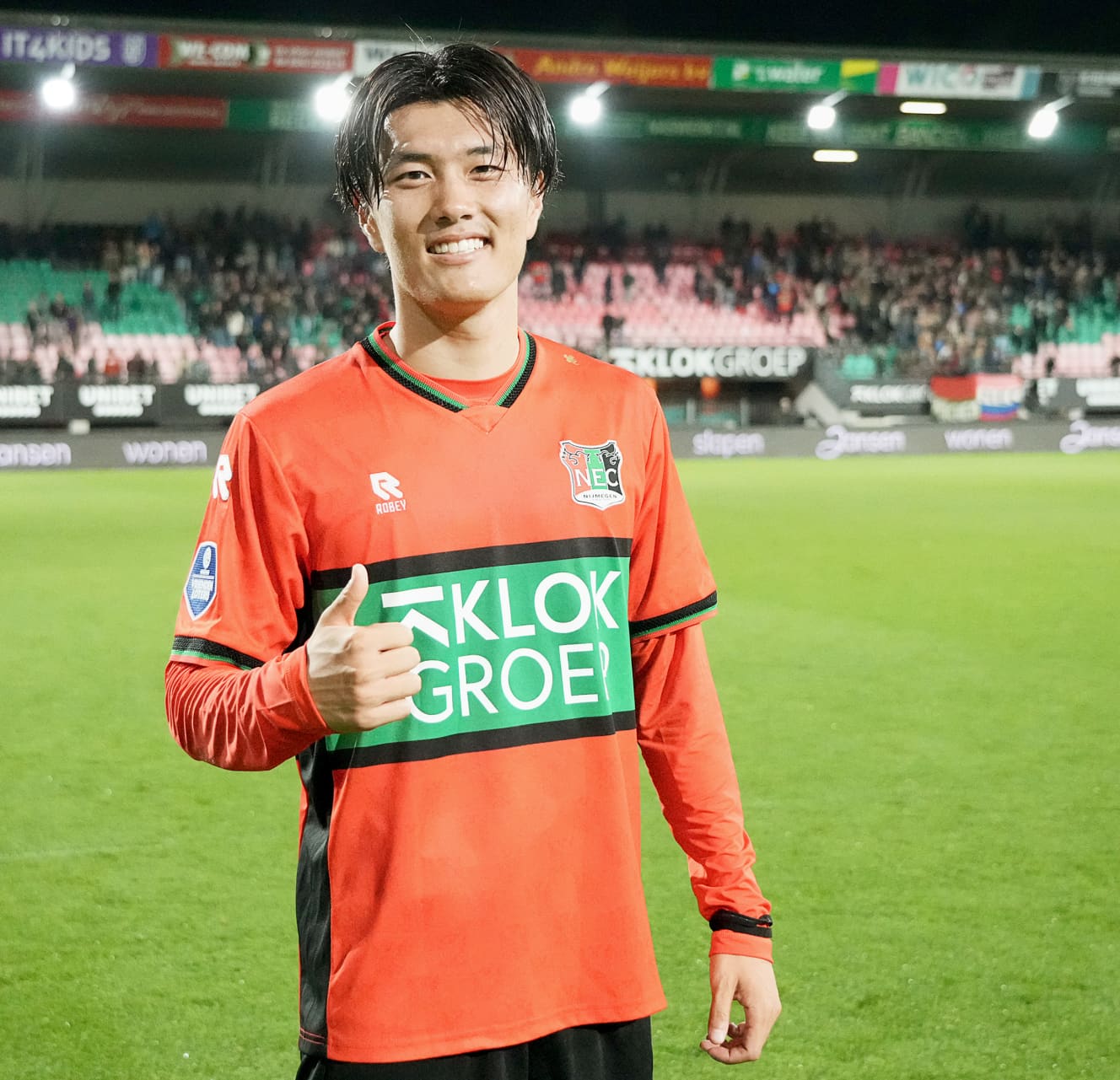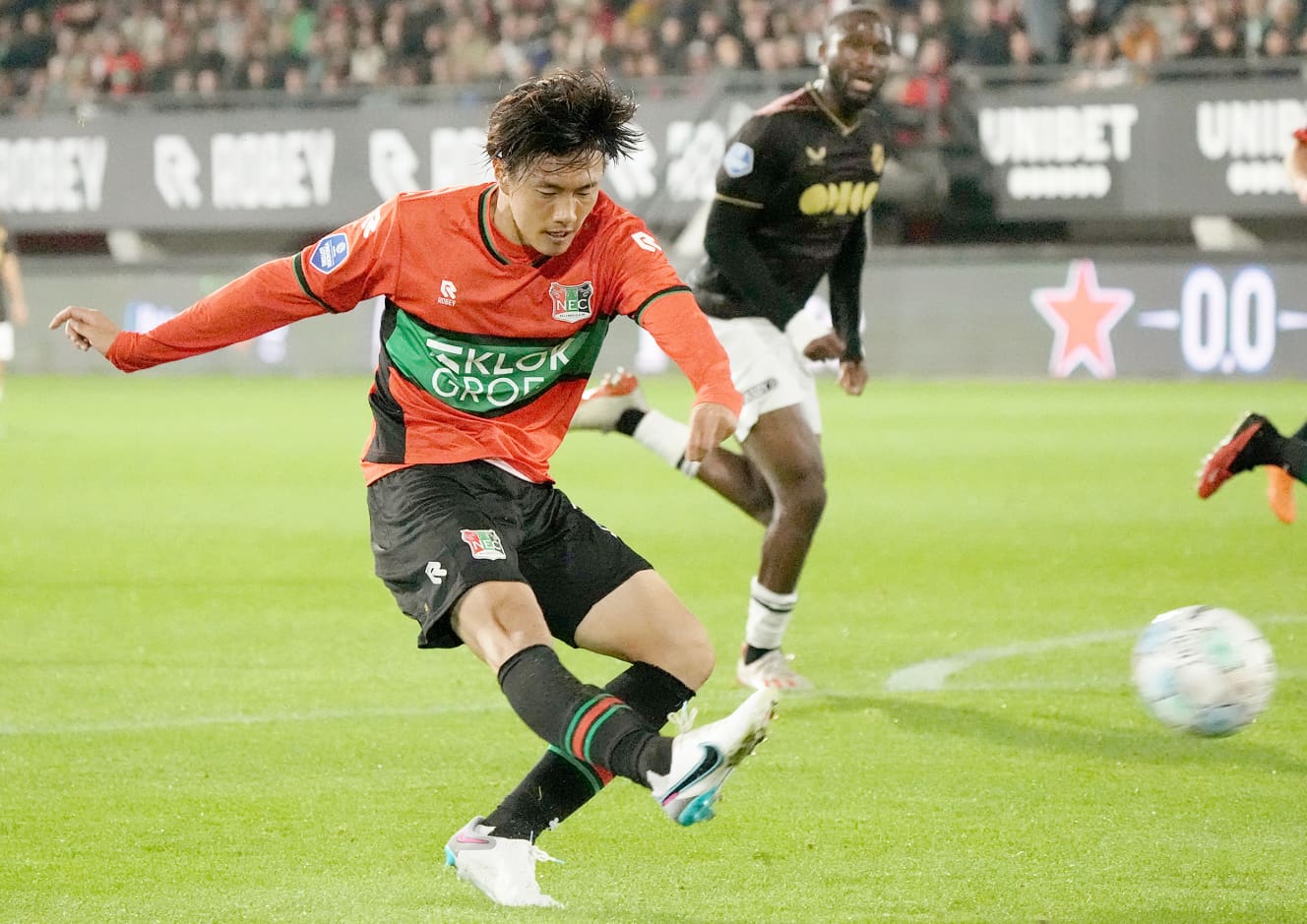Despite the frustration of starting on the bench…NEC’s Koki Ogawa: “I am the best Japanese player who can score.
Two consecutive goals in his first year in the Netherlands! Ace striker candidate for Japan national team

He participated in the U-20 World Cup in 2005 along with Ritsu Doan (25), Takehiro Tomiyasu (24), Ko Itakura (26), and Takefusa Kubo (22), who are now the mainstays of the Moriyasu Japan team. He scored a goal in the first game against South Africa, and has been called the ace of the national team for each generation.
Koki Ogawa, 26, who transferred from Yokohama FC to NEC Nijmegen of the Netherlands first division this summer, has made a good start, scoring goals in two consecutive games since the opening match on August 13.
It was good to score from the first game, but I don’t think I played that well myself (laughs). Maybe it’s because the Dutch league is considered a step-up league, and everyone is selfishly going for goals…I’m the CF, the ball comes to me, and I’m not scoring them… For a FW, if you don’t score in two or three games, it’s no good if you get replaced. This is where the game begins.”
Ogawa, who had been a starter since the start of the season, was not in the starting lineup for the match against Utrecht on September 23, and he said, “The game starts from here.
The arrival of Bas Dost (34), a tall 196 cm (196 cm) FWB, made things difficult for Ogawa.
I didn’t know about him (Dost). I didn’t know about him (Dost). I just thought that a big player had moved to Ogawa (laughs). (Laughs.) But the first game he played in, he started rolling his shoulders during the warm-up, and the stands went wild. I asked him about it, and he told me that he was a former member of the Dutch national team and had been a top scorer. That was the first time I recognized that a strong rival had arrived.
As if to rouse himself, Ogawa repeated, “The game starts here.
I was able to move to the Netherlands, but I don’t think everything will be easy. Everyone has ups and downs, and you don’t grow in a straight line. FWs have a clear result in the form of a goal.
The number of goals scored at the end of the season is more important than the number of minutes played. My condition is not bad, and I would like to keep up this good form. It is my eighth year as a professional, and I think I know that how I view the period ahead is important. This is where my true value as a person and as a player will be tested. I hope to show that Ogawa is the best scorer on this team.
In his first six seasons as a professional player at Jubilo Iwata, Ogawa scored a career-high (at the time) nine goals in 2008, but the following year he scored only one goal and was not selected for the Tokyo Olympics. However, in 2010, he moved to J2 club Yokohama FC, where he scored 26 goals and was named top scorer and MVP, and in 2011, when the club was promoted to J1, he scored six goals in 15 games to earn a transfer to NEC.
He was promoted to J1 in 2011, and his six goals in 15 games earned him a move to NEC. However, the CF position is one of the few positions where there is no absolute starter, despite the presence of players such as Takuma Asano (28), Kyogo Furuhashi (28), and Kise Ueda (25). There is still a good chance for him to break into the team in the future.
Of course, that is why I came here. Most of the members of the national team are players who play for top European clubs. I feel that they are able to compete in international matches because they usually play at a high level of intensity. I haven’t made the national team yet, but I am confident that I can do it, and I believe that I am the one who can score the most points.
Ogawa’s challenge to overturn the pecking order in both the team and Moriyasu Japan is just beginning.

From the November 3, 2023 issue of FRIDAY
Interview and text by: Masao Kurihara PHOTO: Watanabe Koji